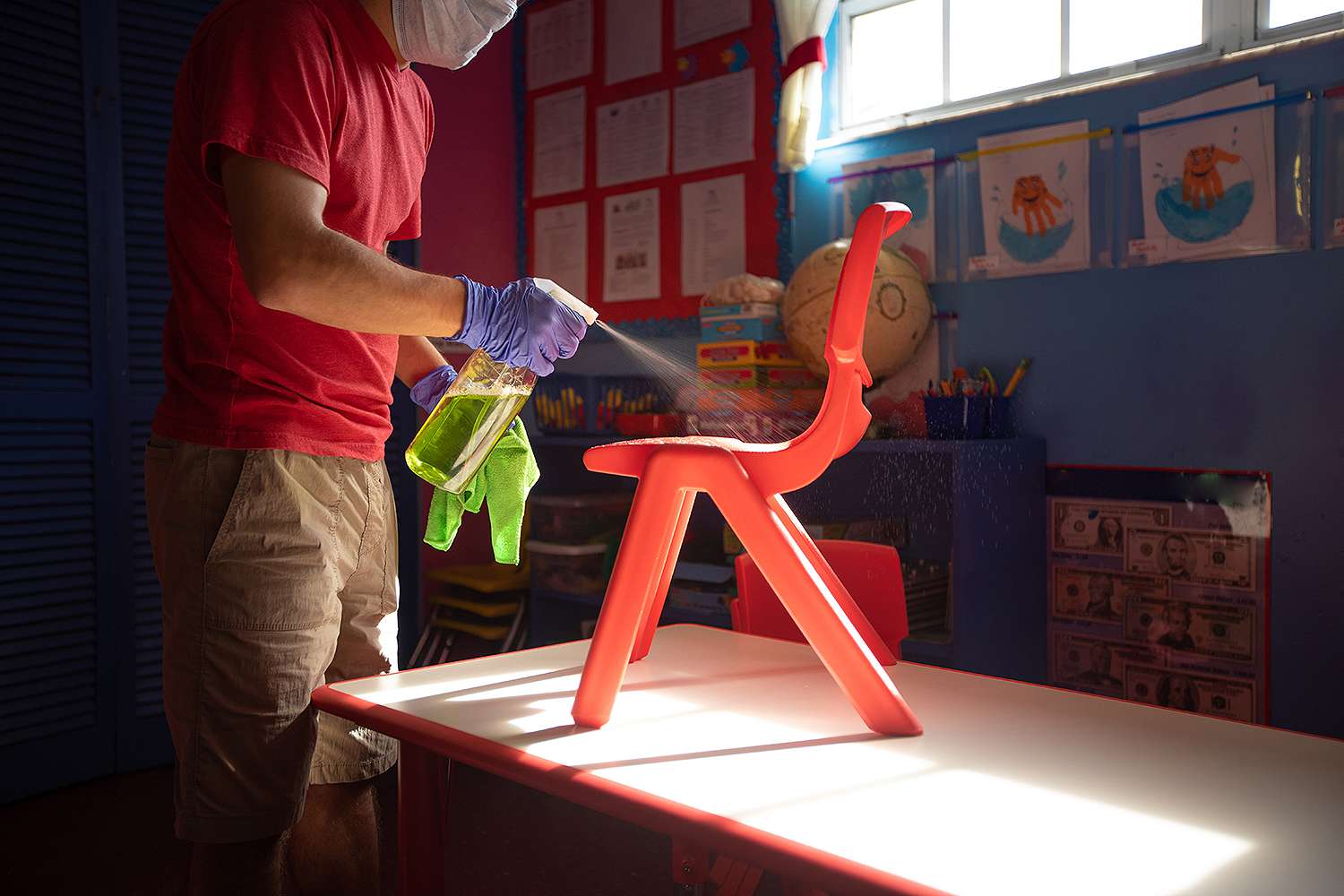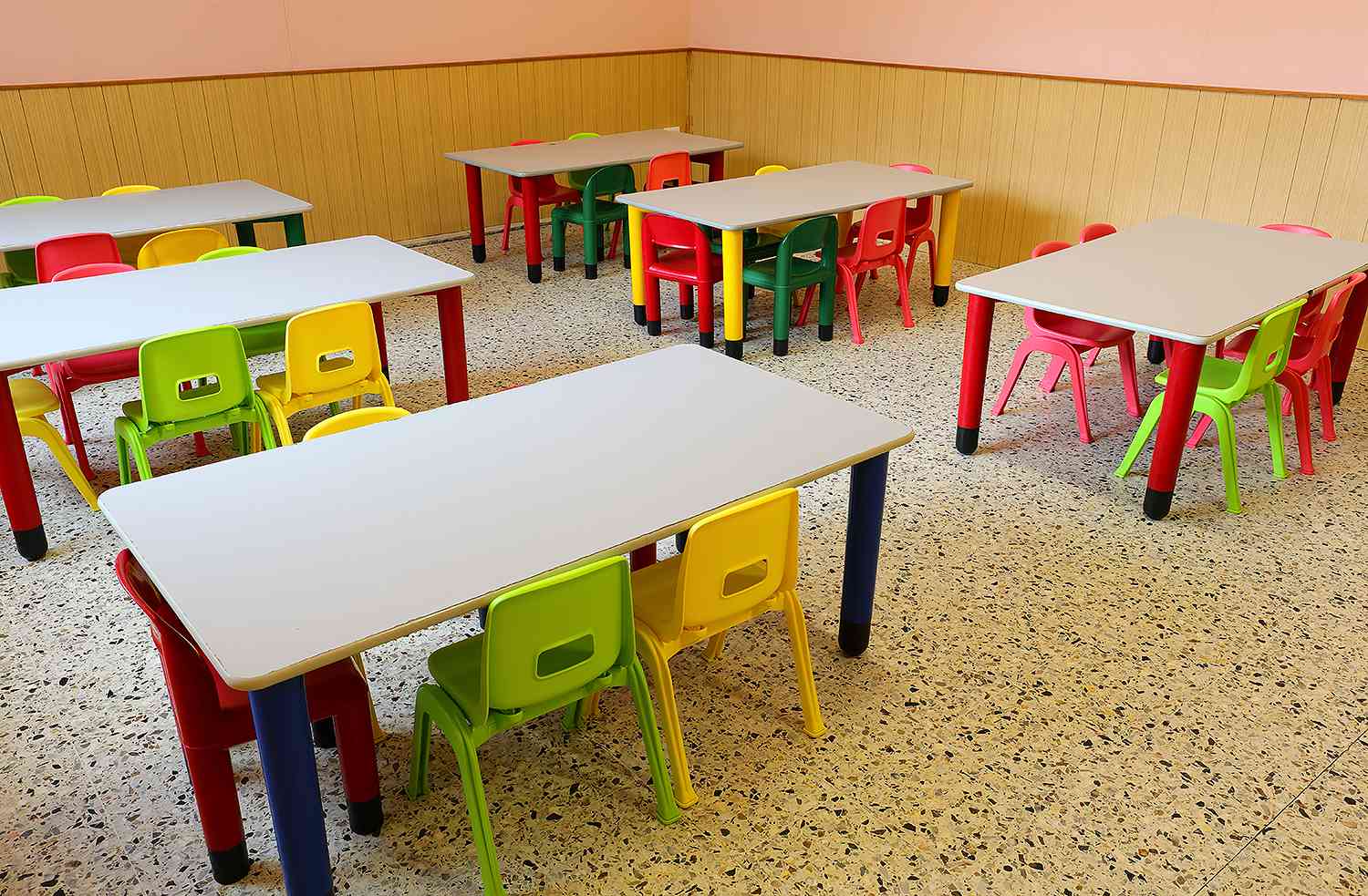
A new study conducted by Yale University has found that child care centers are not linked to the spread of the coronavirus, as long as safety protocols and guidelines are followed.
In the study published Wednesday in Pediatrics — the peer-reviewed journal of the American Academy of Pediatrics — researchers surveyed 57,000 child care providers across all 50 states, plus Washington, D.C. and Puerto Rico, that remained open through the height of the pandemic.
They then compared self-reported COVID-19 infections and hospitalizations among workers whose programs stayed open to the reports of workers whose programs had closed.
Researchers found no difference in the outcomes, which suggests that there was no "elevated risk" of COVID-19 spread due to child care centers staying open — assuming that the centers follow safety procedures.
"Within the context of considerable infection mitigation efforts in U.S. child care programs, exposure to child care during the early months of the U.S. pandemic was not associated with elevated risk for COVID-19 transmission to providers," the study reads. "These findings must be interpreted only within the context of background transmission rates and the considerable infection mitigation efforts implemented in child care programs."
The study's findings provide a new lens for child care workers moving forward, as businesses across the country continue to grapple with how to provide services while maintaining employee safety.

Never miss a story — sign up for PEOPLE's free daily newsletter to stay up-to-date on the best of what PEOPLE has to offer, from juicy celebrity news to compelling human interest stories.
“Until now, decision makers had no way to assess whether opening child care centers would put staff at greater risk of contracting COVID-19,” Walter Gilliam, the study’s lead author, told the Associated Press. “This study tells us that as long as there are strong on-site measures to prevent infection, providing care for young children doesn’t seem to add to the provider’s risk of getting sick.”
Lynette Fraga, the CEO of Child Care Aware of America, who also participated in the study, also noted to Today that the study's results depend on workers and centers taking the extra safety precautions.
"This study shows that to be open safely, child care providers will need to practice mitigation and prevention strategies which cost money," Fraga said. "And, at times, it may not be safe for child care to be open if community transmission rates are high. To stabilize an industry facing additional costs and ongoing, public health-related closures, significant funding is needed."
While the study provides optimism for some child care centers, Gilliam told Today that these findings do not necessarily translate to schools.
"Adults who work with infants, toddlers and preschoolers typically have a small group of children who stay together all day," said Gilliam. "Middle schools and high schools may have hundreds of people in a building — and typically, moving from class to class. Those factors alone make K-12 schools very different from child care programs."
Before this study — and as the spread of the virus started the decline over the summer — the American Academy of Pediatrics (AAP) encouraged school districts to try and get students back to campuses this fall for their health.
President Donald Trump's administration then attempted to co-opt the AAP's stance on reopening schools and even threatened to withhold funding from districts that did not fully reopen their classrooms.
The AAP rebutted the administration's push and said that while they encourage school reopening, it has to be done "in a way that maximizes safety, learning, and the well-being of children, teachers, and staff will clearly require substantial new investments in our schools and campuses."
Source: Read Full Article
